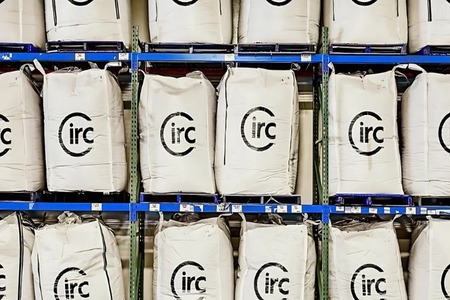
Zara partners with Lanzatech to launch dresses made of recycled carbon emissions
YarnsandFibers News Bureau 2021-12-16 07:56:46 – SpainInditex-owned Zara has teamed up with LanzaTech, a biotechnology company, to release a limited-edition line of black dresses manufactured from carbon emissions.
Fabric created from carbon emissions is used in the Zara capsule collection of black party dresses. The Zara capsule collection of black dresses, according to the business, is the first clothes manufactured from carbon waste to hit the market.
LanzaTech's biological technology absorbs and transforms carbon dioxide emissions from steel mills that would otherwise be released into the atmosphere.
LanzaTech uses a fermentation process to convert steel mill emissions into Lanzanol (ethanol). India Glycols Limited converts the Lanzanol into low carbon monoethylene glycol, which is then transformed into low carbon polyester yarn. Fabric for a Zara capsule collection of party dresses was made with this yarn.
LanzaTech converts various feedstocks, such as agricultural or household waste, into ethanol using a fermentation process similar to that of beer or wine, but instead of yeast, it uses waste carbon from sugars and microbes.
Jennifer Holmgren, CEO of LanzaTech, said that this relationship with Inditex and Zara, which brings garments created from waste carbon emissions to the market. LanzaTech's technology can assist fashion brands and retailers in reducing their carbon footprint. They've discovered a new technique to convert carbon emissions into cloth by collaborating with Zara.
The dresses are only available to buy online.
LanzaTech and Lululemon Athletica, a Canadian athletic apparel retailer, collaborated earlier this year on what was billed as the world's first yarn and fabric made from recovered carbon emissions that would otherwise be released into the atmosphere as pollution.
LanzaTech also turns various feedstocks, such as agricultural or domestic waste, into ethanol utilizing a fermentation process similar to that of beer or wine, but instead of yeast, it uses waste carbon from sugars and microorganisms.
Inditex recently announced that it is bringing forward its net zero emissions target by ten years, to 2040, and that it will achieve its sustainable cotton target by 2023, two years ahead of schedule.
Market Intelligence
Ask for free sample Report

experience
Customer Base
dedicated team
Countries Served Worldwide









